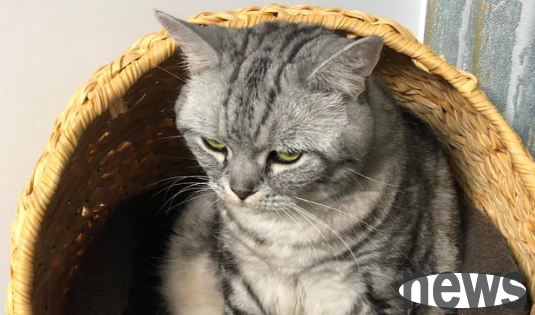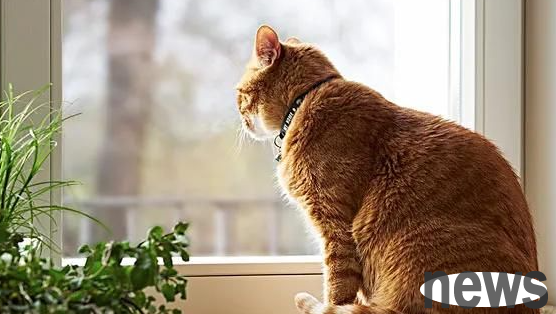The cat has 3 different blood types: type A, type B and type AB. Type A is very common. It can be said that most cats around us have type A blood. It is said that more than 90% of American cats have type A blood. The little secret of cat blood type:...
The cat has 3 different blood types: type A, type B and type AB. Type A is very common. It can be said that most cats around us have type A blood. It is said that more than 90% of American cats have type A blood.

The little secret of cat blood type:
Among the breeds, 100% of Siamese cats are type A blood type, and among Himalayan and Maine cats, type A accounts for 90%; while Turkish Angora and Turkish Vajra cats each account for half of each;
What are the blood types of cats? What is anemia? In contrast, the distribution of type B is not so uniform. It is very common in some breeds and is relatively rare in other breeds. There are many species such as Abyssinian cats, Sphinx cats, German curly cats and Koenice curly cats.
And type AB is a rare blood type in any variety, and it is only distributed in varieties with type B. So in life, even in the treatment of cats requiring blood transfusions, the blood type problem is not that obvious unless your cat's blood type is very rare. What determines the blood type of cats?
The blood type of humans is determined by genes, and so does cats. In felines, the genes that control blood type A are dominant, while the genes that control blood type B are recessive, which means that only individuals whose blood type genes are homozygous, that is, their blood type will be B. If the cat has offspring, it can only pass one blood type B to its son or daughter.
, while cats with type A blood are different. They may have two blood type A genes (professionally called homozygous), but they may also have one blood type A gene and one blood type B gene (professionally called heterozygous).
If this cat is a heterozygous, half of its offspring will inherit its type A blood gene, while the other half of its offspring will obtain the type B blood gene. So if a homozygous blood cat with type A finds a blood type B, their offspring must be type A blood type. As for type AB blood, this is a special case, and the genes that control it are inherited independently.
The current hypothesis is that the blood type AB gene is dominant for the blood type B gene and recessive for the blood type A gene. In short, there are too few cats with type AB blood. In a 1996 American study, among the 9,239 cats who performed blood type tests, only 13 were type AB, accounting for only 0.14%.
You cannot transfusion wrongly when giving a cat blood!
Cats are like humans and have natural antibodies in their bodies, so cat blood types are similar to human blood types. Type A blood is like human type O, with less antibody effect in the body; Type B is like human type A, with antibodies in the body; Type AB is like human type AB, with no antibodies in the body.
Therefore, before blood transfusion, cats must first undergo blood type identification and cross-matching test to avoid transfusion reactions. Blood transfusion therapy is the best way to treat anemia caused by various causes. Its application in clinical practice is also more important. In foreign countries, identifying cat blood type has become a routine diagnosis. Cats with type B blood contain anti-A antibodies in their blood, and in kittens who are only a few months old, the number of the antibodies has reached a very high level. If they encounter red blood cells with type A antigen, agglutination reaction will occur and lead to hemolysis.
However, this does not usually happen because there are no type A red blood cells in the body of a type B blood cat. However, just like when a human is transfusion, if a cat with type B blood is injected with blood, it may be life-threatening.
In addition to blood, antibodies are also present in the colostrum and milk secreted by female cats. Therefore, if a newborn A-type blood cat drinks the milk of a B-type blood cat on the first day of birth, the kitten may absorb a large amount of anti-A antibodies, thereby destroying the original A-type red blood cells in its body - this is the legendary "newborn animal isohemolytic disease", also known as "newborn animal isoimmune hemolytic anemia".

Therefore, except that blood cannot be transfused, milk cannot be eaten incorrectly. Newborn kittens can absorb antibodies in colostrum within 48 hours after birth.
If two cats with different blood types are mated and the blood types of the kitten born are different from those of the female cat, the kitten may experience newborn kitten erythrocyte lysis disease (FNI) after absorbing colostrum. In severe cases, a litter of kittens died one after another within a week.
Therefore, it is also necessary to perform blood type identification before mating, especially for breeds with large distribution of type B cats. In cats with type A blood, about 1/3 are born with anti-B antibodies, which will agglutinate with red blood cells with type B antigen. But in most cases, the levels of B antibodies are relatively low - enough to cause severe hemolytic transfusion reactions, but not enough to cause hemolytic neonatal animals.
Does the blood type of a cat determine personality?
For cats, whether blood type has an impact on personality? Here Dudu can only say that there is no scientific research to make conclusions. If you want to judge the personality of your cat based on the blood type of a cat, to be more conservative, it is understandable to do it when playing games.